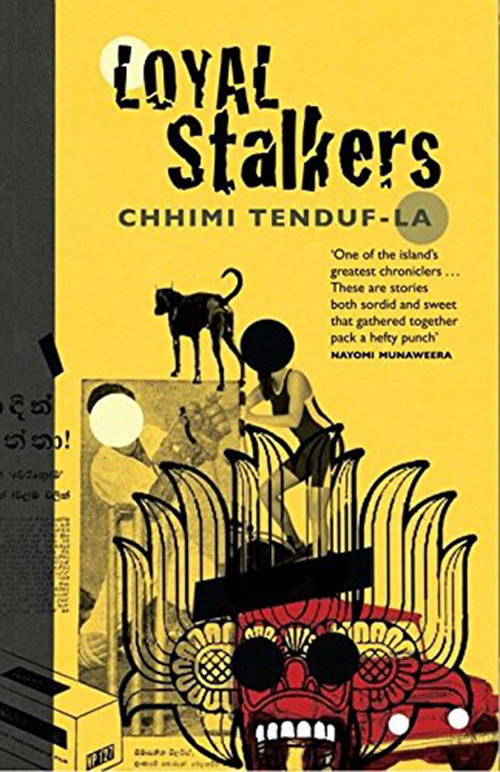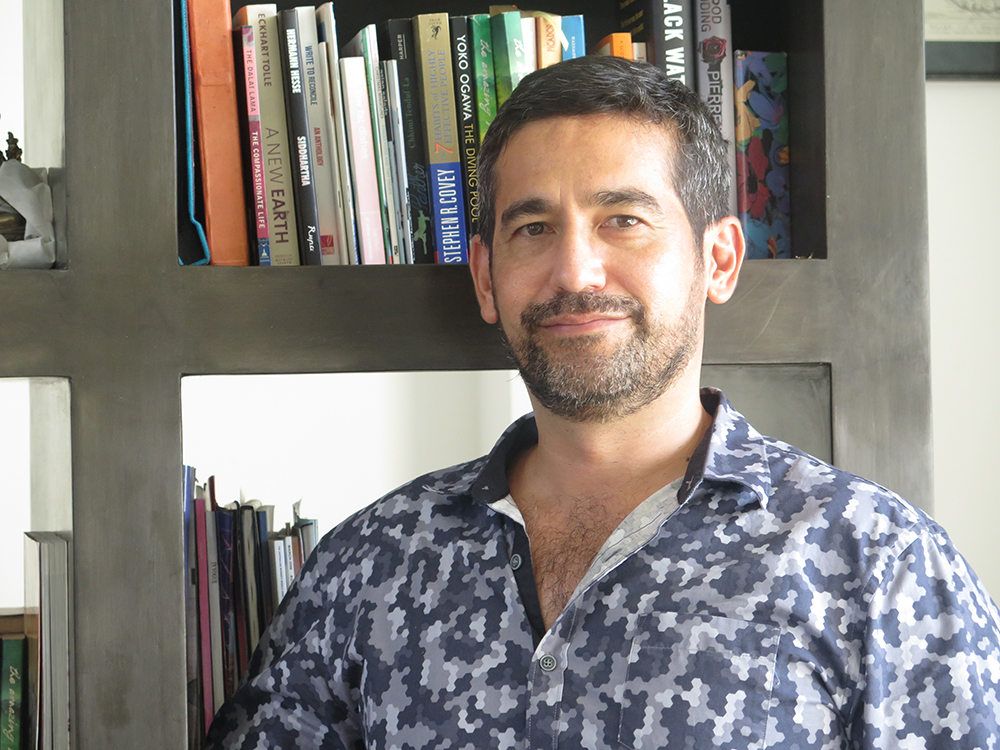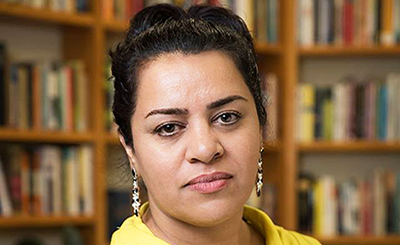
Chhimi Tenduf-La. Photo courtesy of the author
Sri Lanka-based author Chhimi Tenduf-La’s collection of interlinked stories, Loyal Stalkers, has been published by Pan Macmillan India. His previous two novels are The Amazing Racist and Panther, which were published in 2015.
Loyal Stalkers brings together 15 edgy stories of everyday Sri Lankan living where “smugglers, waiters, single moms and cheaters cross paths as they attempt to negotiate a web of shock, subterfuge and irony.”
Tenduf-La says that he loves thinking about what makes people tick; what in their past makes them behave well or badly in the present. “With these stories, because they are linked, one story may explain a character’s emotions and relationships in another. I begin writing most stories assuming all characters want to be good people and when they do bad things I can refer back to another story to see if there is an explanation for this,” says the author. He adds, “Since these stories are about relationships, so it made sense to examine how characters in different stories interact and affect each other.”
Tenduf-La says all his characters are either based on quirky people he knows (mainly his mother-in-law) or had read about. “Obviously I take some liberties,” he says.
Excerpts from an interview with The Punch.
THE PUNCH: All your stories in Loyal Stalkers deftly deal with relationships and human emotions. How did you go about choosing the canvas for these stories?
CHHIMI TENDUF-LA: I love thinking about what makes people tick; what in their past makes them behave well or badly in the present. As a parent with young children, I am invariably aware of how much my actions and behavior can affect how they turn out. With these stories, because they are linked, one story may explain a character’s emotions and relationships in another. I begin writing most stories assuming all characters want to be good people and when they do bad things I can refer back to another story to see if there is an explanation for this.
THE PUNCH: How did these 15 stories come about? Did you set out to write interlinked stories or it happened as you were working on these stories?
CHHIMI TENDUF-LA: I started most of these as stand-alone stories. I am aware that it is easier for a reader to put a book down if each story starts from scratch so I wanted to link them so that, as the reader gets further into the book, he or she will want to continue rather than treating each chapter as a separate event. As you said in your first question, these stories are about relationships, so it made sense to examine how characters in different stories interact and affect each other.
THE PUNCH: Contemporary Sri Lanka and its people come alive in your books. Even though it’s your adopted country, you seem to capture the typical nuances and mannerisms of the Islanders really well. What do you think gives you an edge? How relevant to your writing are the insider-outsider perspectives?
CHHIMI TENDUF-LA: Because I am not actually Sri Lankan, I am more fascinated with day-to-day life here than someone who may take it for granted. I would struggle to think of a more helpful, considerate population. The generosity is incredible, particularly with those who have less than others. Because I am not as kind, generous and helpful myself, this is more obvious to me. Someone in England may not write about how cold it is, because that is the norm. Even though I have lived here for a long time, some things are still new to me, so I observe them, remember them and write about them.
THE PUNCH: Do you draw on your own experiences? Do these stories have real-life parallels?
CHHIMI TENDUF-LA: All my characters are either based on quirky people I know (mainly my mother-in-law) or have read about. Obviously I have taken some liberties; for instance, I know a gym instructor who is painfully shy and barely talks. He instructs his new female clients with claps and gestures rather than words. He is actually one of the nicest, most gentle and loving people I know. In the book, I turned him into a stalker. This outward personality trait fit nicely with the character arch of the obsessive and abused trainer I was writing about.
The other stories have real-life parallels too. Most are based on events I have read about, be it here or in other parts of the world. Because they are all about human emotions, it was easy to transport a true story from an American high school, for example, into a Sri Lankan setting.
THE PUNCH: How do some of the native Sri Lankans respond to their life you portray in your books?
CHHIMI TENDUF-LA: Some say I have captured it well and can see how obviously I love the country, for all its strengths and weaknesses. They are able to nod their heads and say how much my characters are like people they know. At the end of the day, all I am really doing is observing these characters and writing about them as best I can. A few readers want to rub chili powder in my eyes because they think, as a foreigner living here, I have no right to paint the country in anything but the most positive light. I think a fair criticism, in some ways, is that maybe my dialogue pokes fun at people for whom English is not their native language. Yet, it would be very hard to write convincing dialogue for some of my characters if I made them sound like Churchill and again, all the peculiar turns of phrase I use I have not invented. They are things I have heard. I think since I have grown and matured as a writer, I have got this balance better in Loyal Stalkers.

Loyal Stalkers
By Chhimi Tenduf-La
Pan Macmillan India
Rs 499, pp 240
THE PUNCH: Tell us about your first impressions of Sri Lanka. Has your approach and understanding changed over the years?
CHHIMI TENDUF-LA: We moved here when I was eight years old, and my main memories of that time were that all the mild curries people kindly made for me were explosive. I remember going to a hamburger joint which served what seemed to be a rock between a stale bun. Yet, what I remember the most is people smiling; we had been here on holiday many times before we came to live here and I always used to love it because people were so friendly. That has not changed, but the quality of hamburgers has.
I now see the country through the eyes of an adult rather than a child, but this does not mean I am more perceptive in anyway. I guess you just become a little more cynical. I used to go through a phase of wondering what someone wants from me if they are smiling and being overly friendly. Now I realise, okay there are a few bad eggs, but on the most part they are just exceptionally kind people and if occasionally I get ripped off I feel sorry for the people who do it because they could have children to feed. It is better to be cheated than to cheat, and I am thankful I am in a situation where I do not have to be tempted by the latter.
More from The Byword
Comments
*Comments will be moderated












